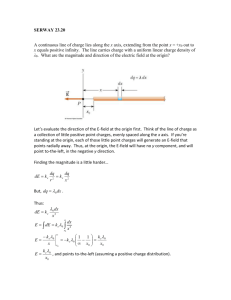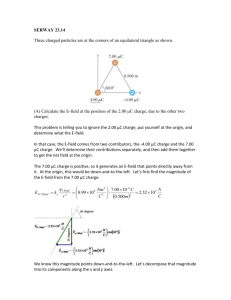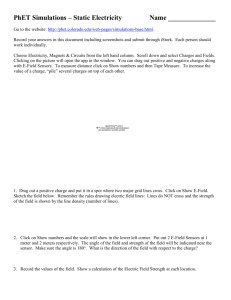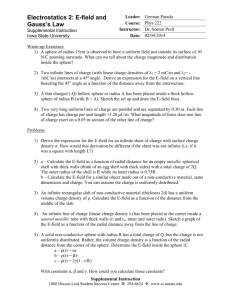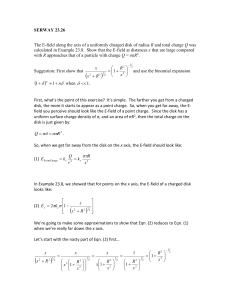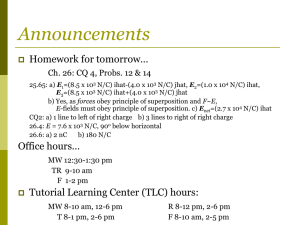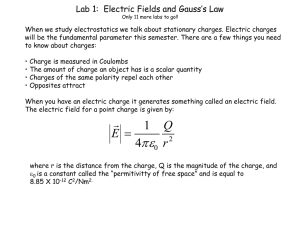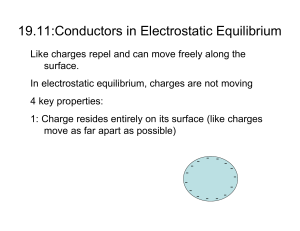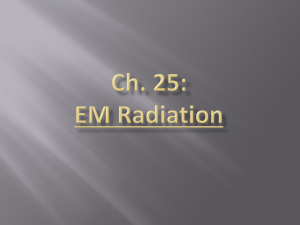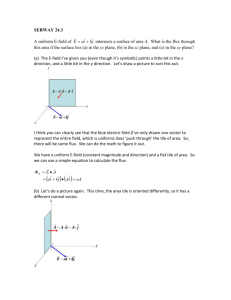Focus on Electric Potential
advertisement
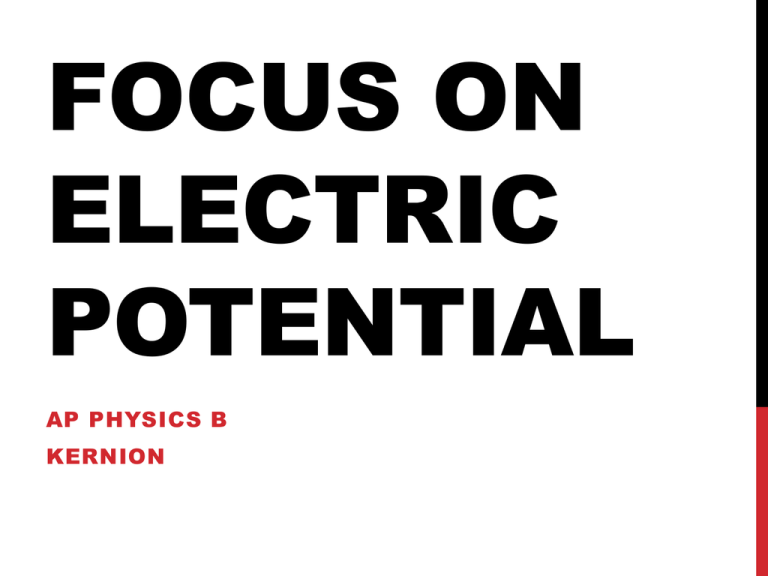
FOCUS ON ELECTRIC POTENTIAL AP PHYSICS B KERNION MAIN POINTS oElectrical Potential Energy (UE), scalar quantity depends on: o position in the E-field o amount of charge o magnitude of the E-field at that point o For uniform E-fields: o ΔU = -qEd for a positive charge moving ALONG the field o ΔU = qEd for a negative charge moving ALONG the field oA new scalar quantity, Electric potential (V) is defined as the electric potential energy per unit charge o U/q = V (You MUST use the sign on q) o ΔU/q = ΔV (The change in electric potential...voltage) o unit = J/C = volt (v) FOR MOVEMENT ALONG A UNIFORM E-FIELD oFor a positive charge o ΔU/q = ΔV = -qEd/q = -Ed oFor a negative charge o ΔU/q = ΔV = qEd/-q = -Ed oMovement ALONG the field ALWAYS lowers the electrical potential oN/C = V/m EXAMPLE oA proton is released from rest in a uniform E-field (E = 8 x 104 V/m) directed to the right. The proton moves a distance of 0.5 m along the field. Find the following quantities o ΔV, ΔU, ΔK, v, WE o ΔV = -Ed = (8x104)(0.5) = 4x104 volts o ΔU = q ΔV = 1.6x10-19C (4x104 v) = 6.4x10-15J o ΔK = -ΔU = -6.4x10-15 J = ½ mv2 = ½(1.67x10-27kg) o v = 2.8x106m/s o WE = - ΔU = ΔK = -6.4x10-15 J ELECTRIC POTENTIAL AND NON-UNIFORM E-FIELDS + Electric potential caused by a point particle V = kq/r (keep sign on charge) EXAMPLE PROBLEM Find the electric potential at point p p 4m 3m q1 q2 (0.5 μC) (-2.0 μC) VP = ∑kq/r = k[q1/r1 + q2/r2] VP = 9x109[(0.5x10-6/4) + (-2x10-6/5) VP = -2475 volts
